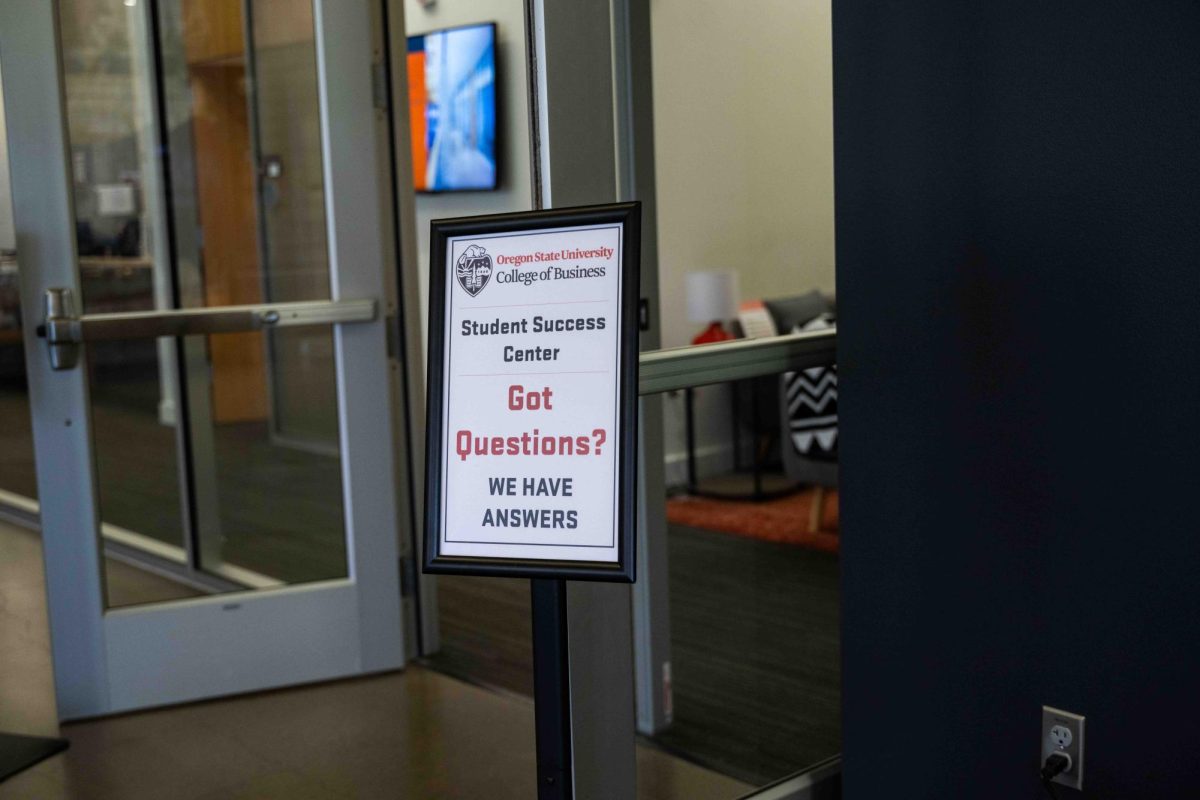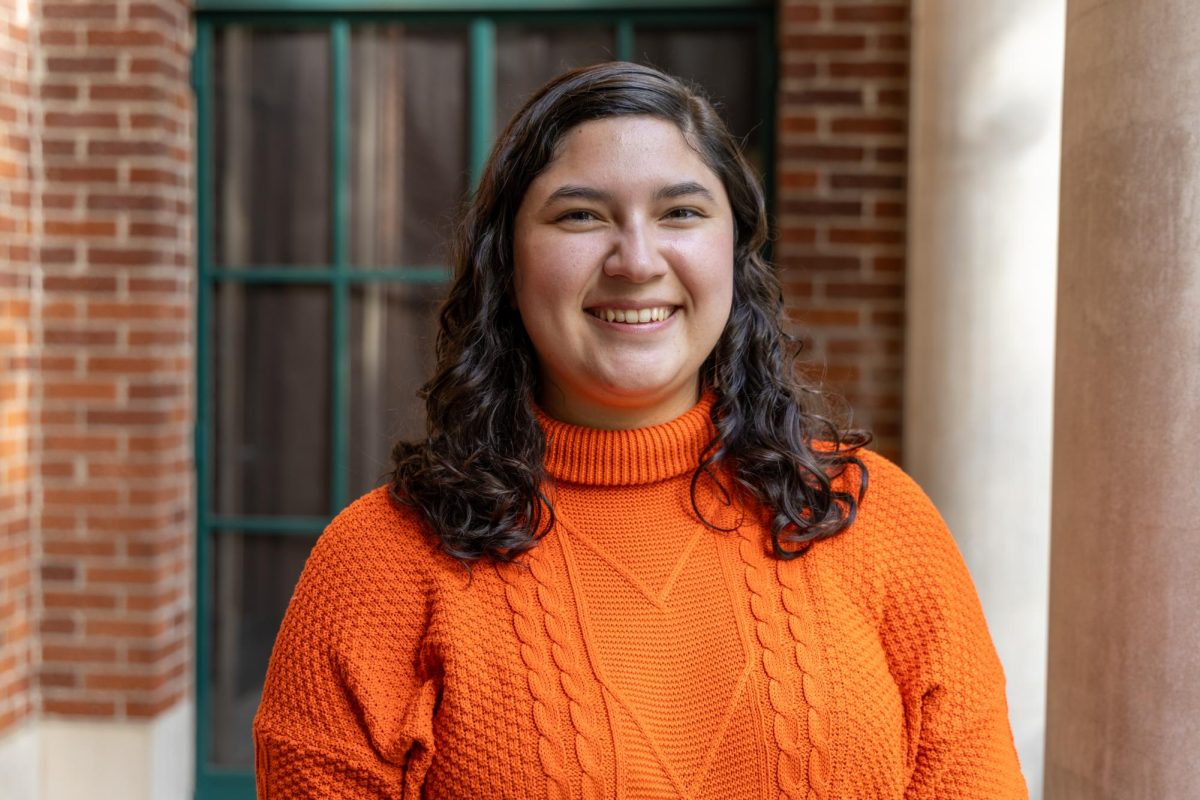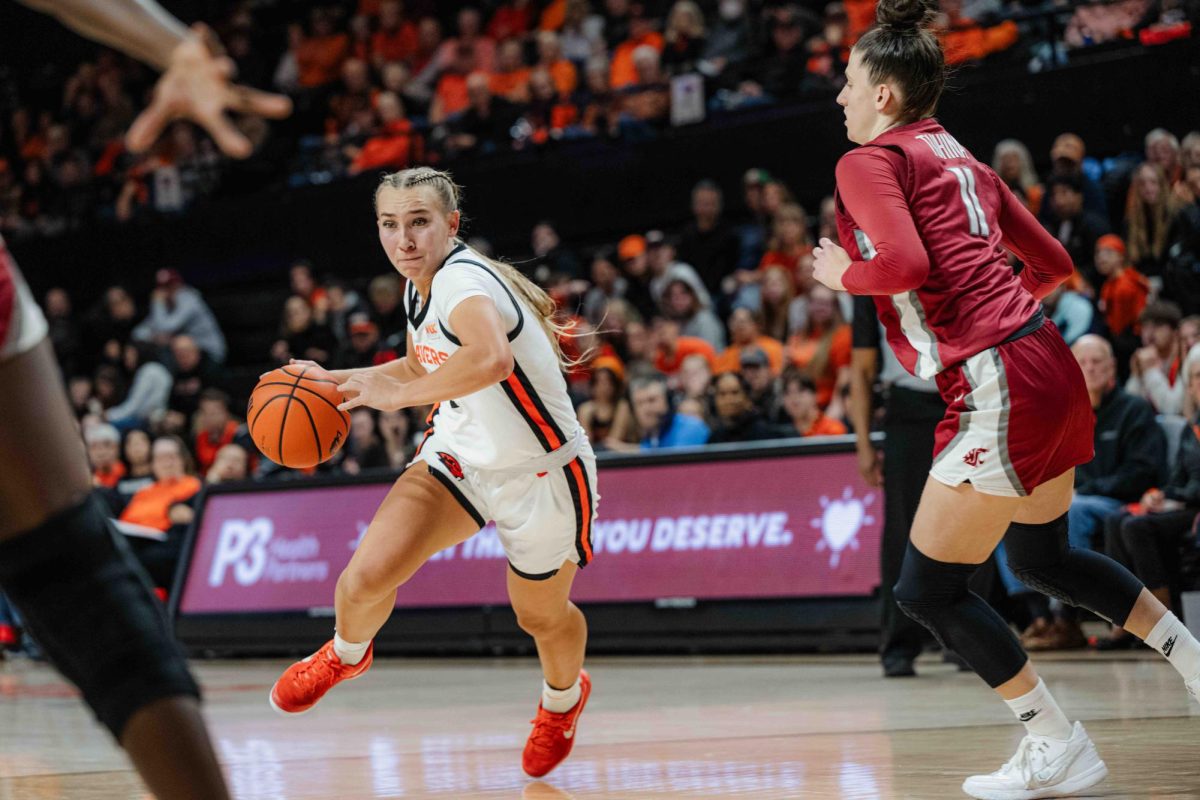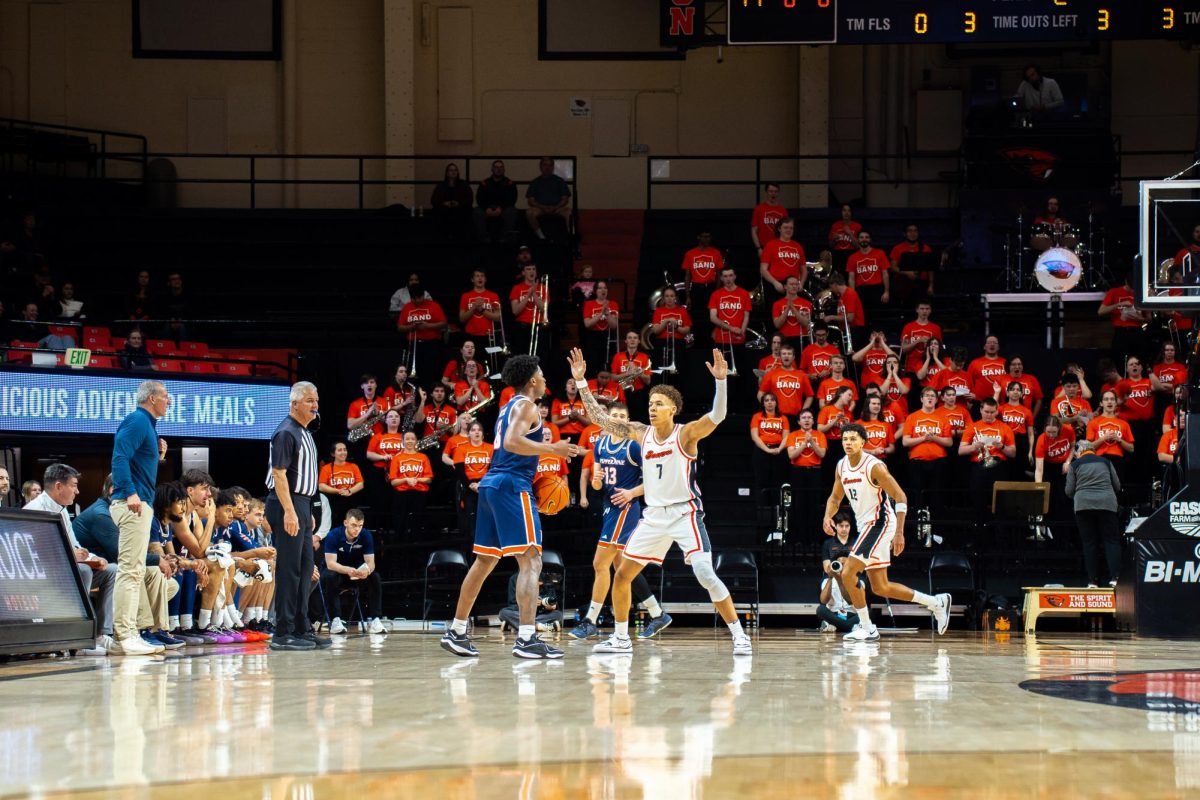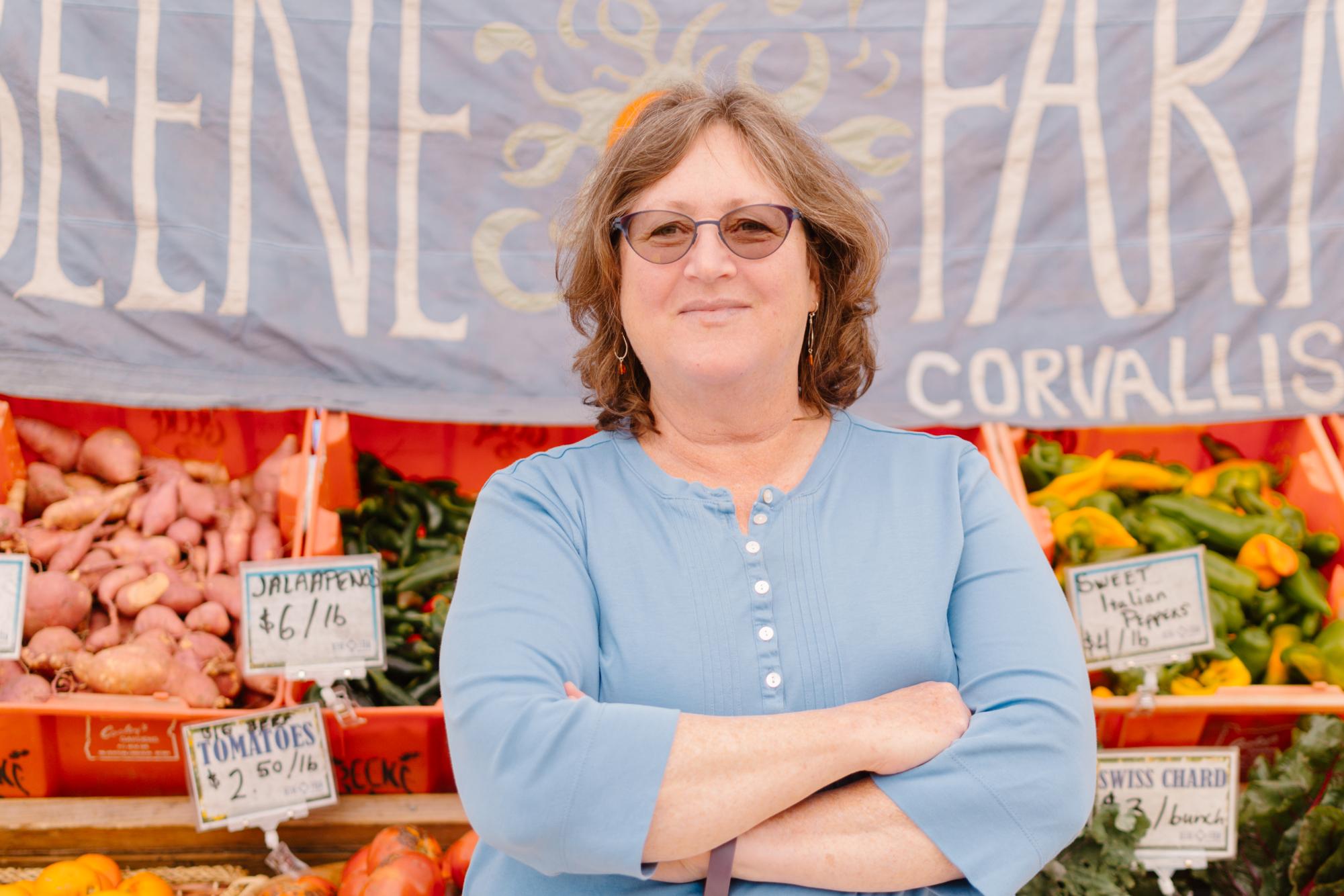Directing a farmers’ market is much more than just browsing the booths on a sunny Saturday morning. In fact, it’s only a peek into Rebecca Landis’ weekly routine.
Landis has been the market director for the Corvallis Albany Farmers’ Markets for almost 30 years, since 1995.
The CAFM is a small nonprofit organization led by local farmers in Benton, Linn, Lincoln, Lane, Marion and Polk counties.
Landis also works with the Corvallis Indoor Winter Market that runs from mid January to mid April and is a consultant for the Philomath and Lebanon Farmers Markets.
Before her time at the CAFM, Landis worked as a legislator for the University of Texas for five years.
When she moved to the Pacific Northwest, she worked as a budget analysis/homeless programs coordinator for the Community Services Consortium in Linn, Benton and Lincoln counties.
Landis also has an undergraduate degree in journalism from the University of North Texas and a graduate degree in political science from the University of Texas at Austin.
“We operate on public property, so an understanding of how government operates and how to communicate with governments is pretty important, I think,” Landis said. “Writing, editing, budgeting––those are all good skills for almost any kind of work, but certainly they’re important in running a nonprofit organization; especially one that actually runs an event.”
Some of her responsibilities as a market director include maintaining legal existence as a nonprofit, holding annual meetings and elections for board members, keeping up with social media, overseeing vendor applications, enforcing agricultural law and operating food equity programs.
“There’s an endless stream of bureaucracy that goes behind this so that people can hang out here on a Saturday morning and have a good time and get some real food,” Landis said.
Landis has advocated for the implementation of several food equity programs into the CAFM, which has been successful. Double-Up Food Bucks is a program that works with the Supplemental Nutrition Assistance Program (otherwise known as SNAP or EBT). When you use SNAP to spend $20 at the market, DUFB doubles your amount of money to $40 in order to buy more fresh food.
Not only does Landis fight for food equity programs, she also fights for laws that support local farmers and the market as a whole.
“There are times where the regulation for small farmers and what they’re doing is overkill, or has been overkill, so we have gone to the legislator a couple times to tweak it for the small farmers,” Landis said.
What Landis is specifically referring to here is the Farm Direct Marketing Law, which was originally passed in 2011.
According to the Oregon Department of Agriculture, the Farm Direct Law “exempts farm direct marketers from ODA licensing that sell agricultural products that they grow.” The law allows farmers to sell “value-added products” from an unlicensed kitchen without an expensive license.
Some examples of value-added products include jams, pickled goods, dried fruits and more.
Landis believes that interest in local food has played a part in keeping the community and economy alive.
“We know the money stays in the community and helps the community. If you make an effort to buy more things that are local, even things that are locally processed, that helps,” Landis said.
Anita Azarenko, steward of La Mancha Ranch and Orchard, believes that supporting local business goes beyond the economy.
“We can reduce our carbon footprint, because we’re sourcing from local farmers. We also can harvest closer to the optimum quality because we don’t have to worry about transportation and putting it into storage forever,” Azarenko said. “It enables family farms to stay in business, because there’s a struggle at times in terms of economies of scale with larger agriculture because we don’t have the same scale.”








